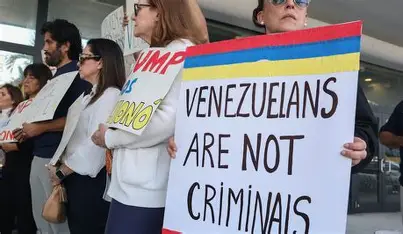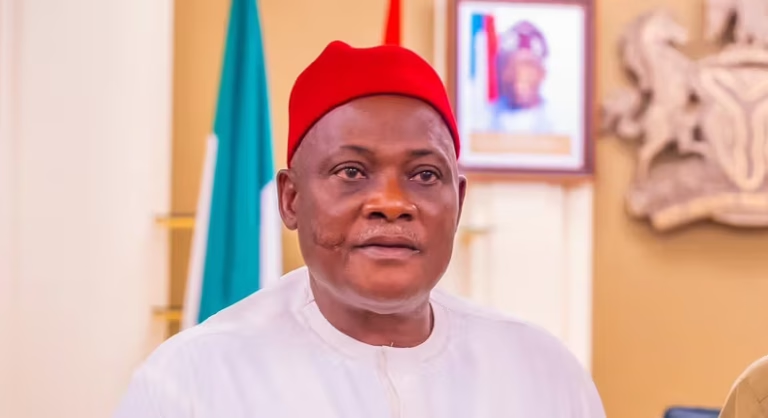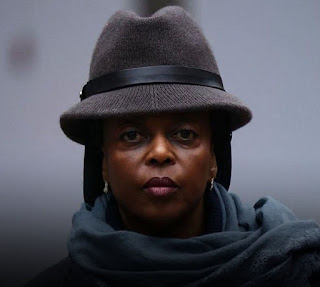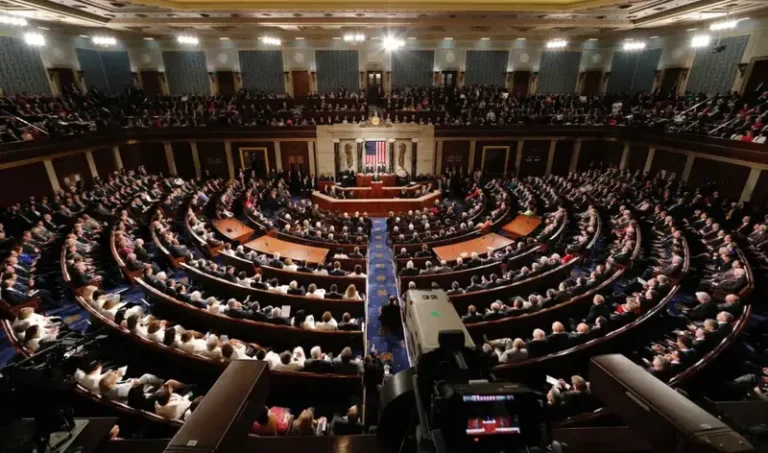
Bianca
Being the text of a paper delivered by Ambassador Bianca Odumegwu Ojukwu on the occasion of the International Research Conference on 50 years post-Nigeria civil war on July 6, 2021 at Nnamdi Azikiwe University, Anambra State.
The Nigeria/Biafra war ended on January 15, 1970 and Biafra was re-integrated into the Nigeria polity with the official policy of ‘No victor, No vanquished’ with the planned implementation of the three Rs: Reconciliation, Reconstruction and Rehabilitation.
The essence of this discourse is to delve into the rudiments and practical applications of this policy, as well as interventions that were propagated as formulas for healing the wounds created by the war, but in effect exposed the complexities and hypocrisy of policy formulations which have consistently failed to deal successfully with the intricacies and challenges of the post conflict scenario. It is also my intention to undertake a cursory analysis of these initiatives in order to determine to what extent each policy has achieved the desired success in addressing the critical national issues of integration and reconciliation.
What has become glaringly obvious is that the much touted three Rs, far from being agents of re-integration ended up as a cover under which the Igbo, with other southern minorities that comprised the breakaway Republic of Biafra, right after the war were subjected to unimaginable punitive monetary measures with the payment of a paltry twenty pounds to Igbo depositors irrespective of whatever amount of money they had saved in the banks; a veiled process by which they were subjected to the harshest set of realities starting with the predicaments of Biafran soldiers and Ex-servicemen who were rendered destitute at the end of that war, to the calculated economic emasculation of the Igbos who were to all intents and purposes excluded from the formal economic sector by the Indigenization Decree whilst reeling from the abandoned property saga.
Little wonder, then that the late legal luminary and human rights icon, Chief Gani Fawehinmi in an interview published in the News Magazine of August 10, 1998 was prompted to state that…
‘the Igbo still bear the scars of the Biafran crisis, and they are still being treated as if the war is still nascent; which is wrong. They have been kept out of security forces of this country at strategic levels. I don’t know how many senior police officers are Igbo, and the Army … it is not fair if you want to establish one country, to marginalize a majority of that magnitude and importance and innovative leadership’.
The manifest challenges of a genuine re-integration of the Igbo into mainstream Nigeria and the lip service approach to the Gen. Yakubu Gowon post war pronouncement of ‘No Victor and no Vanquished’ compelled Gen. Chukwuemeka Odumegwu Ojukwu, Biafra’s wartime leader, in his welcome address to the members of the National Reconciliation Committee at a summit held in Enugu on March 13, 1997 to declare that,
‘The conduct of the war and the manner of its end were no less enlightened. How could a people already inundated with superior arms and endless supplies call for hunger as an (additional) instrument of war against their brothers and sisters? How could one imagine, how much less implement, a policy depriving every Igbo man of his life-long savings and money – leveling everyone far below a poverty line of twenty pounds each, regardless of their wealth? How could a people turn around to evolve a certain indigenization policy intended to make some people buy over the economy after ensuring that their brothers and sisters had no kobo to participate in doing so? How could you march forward and deprive a section of its properties – their only remaining source of sustenance – merely by unilaterally labeling the property abandoned? Abandoned in a foreign land, Jack? We are yet to touch the cases of Igbos who after rendering meritorious services in the Armed Forces and the police, as well as the civil service, were rendered non-persons by both official and unofficial policies of those in power. These do not include a multitude of decrees, edicts, court rulings, infrastructural policies, administrative measures, socio-cultural schemes, and other countless designs intended to achieve the same objective of impoverishing, humiliating, and marginalizing a whole race. No one remembered that these Igbos were the same that played and would continue to play a pivotal role in Nigerian politics, in its economic construction and development, and its unity. All the above were in the context of a certain policy called “Rehabilitation, Reconciliation, and Reconstruction” in whatever order. The only sense in which we can value rehabilitation is when the Igbos are fully rehabilitated into full Nigerian citizens. Instead of any of the above policies and practices abating, they have found expression in some other ways …in quota school admissions, capricious designation of educationally disadvantaged states, haphazard application of federal character, whimsical boundary adjustments, provocative promotions in the services and so on and so forth, none of which – as bad as the policy and concept are – mean what it says, and all of which are carefully crafted and targeted mainly against a section of the Nigerian population, NDIGBO. These are all central issues of justice, democracy and human rights which some of our compatriots in Nigeria would either enjoy violating or watch being violated, of course, to the detriment of Ndigbo’
It remains an incontrovertible fact that the Federal Government of Nigeria has confronted grave difficulties in her efforts to work out a workable engagement between the nationalities- most especially the Igbo within its union, and the nation-state to which they are said to belong, so many decades after the war. How could a government which never deemed it necessary to institute any mechanism or platform for reconciliatory justice in the mould of a truth and justice commission to address the war atrocities be said to be sincerely committed to reconciling its ethnicities? The major considerations in the aftermath of the war should not just have focused on the issue of who would control political power at the center but more importantly, how that political power would be shared in such a way that the states, which are the federating units can act as a moderating influence on the center as the case should be, in a true federation; greater attention should also have been given to how the interests of the various nationalities could be balanced in such a way as to guarantee equality, freedom and equity for all its citizens, and most prominently, how to engender in every Nigerian, that national consciousness which would make him not only proud to be identified as a Nigerian, but also to give that citizen a stake in the nation, such that he or she would be prepared to die for it.
Even the Guardian of London at the end of that war stated that ‘Nigeria’s independence has so far been vitiated by the chronic power struggles of its three major tribes. Nigerians now want to ensure that a workable balance of power is struck between the states and the center, and above all, that no one group dominates the center. The federal victory has not remade Nigeria… it has only provided a chance to do so’.
To what extent successive federal governments have been able to utilize this opportunity effectively remains a matter of debate. Some of the initiatives that have been put in place to assuage the competition (and to what extent they may be considered positive or adverse) among the various nationalities- for wealth, political power, political positions, social services, education, allocation of resources, the composition and control of the Armed Forces and the police, the bureaucracy and the corporations, will be briefly highlighted here, with special emphasis on the Igbo experience of the practical application of such policies.
The Nigeria/Biafra war most commonly referred to as the Civil War (although I am quite sure that most people here today will agree with me, that there is absolutely nothing that is civil about any war, let alone a war between ‘brothers’) has taught us that whatever happens to, or in the Armed Forces of Nigeria can affect the peace and stability in the country. Did it not become inexorable that Nigeria would be subjugated to military rule midway into its First Republic which in turn would result in a civil war, and would subsequently be subjected, even post war, to a series of military and ex-military rulers?
Following the secession of Biafra in 1967, the Nigerian government had ordered all its officers and men who were training at facilities all over the world to return home for the war. They were instructed to return to their bases in their respective regions. Most of these officers and men who returned to their bases which fell under the Biafran areas were compelled to join the Biafran side. At the end of the war, however, the reintegration policy of the Federal Government after amnesty was granted to ex-Biafran soldiers, was limited in its application and many Nigerian officers and men of South Eastern extraction who fought on the side of Biafra discovered that their names were either removed from the list of officers and men of the Nigerian Army, Navy or Air Force as the case may be or that they were not entitled to either pension or gratuities.
Furthermore, in the same process of reintegrating ex-Biafran soldiers into the Nigerian military, a board of officers was set up to investigate the war activities and roles of officers on the secessionist side. When this exercise was concluded, the Adebayo Commission recommended that combatant officers above the rank of Captain were either to be dismissed, discharged or retired without benefits and only Lieutenants and junior officers were to be re-absorbed. Even at that these officers were to face challenges in terms of benefits and promotion. This decision was so craftly implemented to neutralize an entire generation of Igbo officers and edge out the Igbo from ever rising within the Army. It took forty years after the Biafra war for an Igbo man, Lieutenant General Azubuike Ihejirika to be appointed the Chief of Army Staff, under the President Goodluck Jonathan administration in 2010. In view of the foregoing, to what effect, then, was General Gowon’s post war speech of reintegration when considered in basic human terms? Moreover, over five thousand police officers who fought on the Biafra side were granted general amnesty only in 2003 by President Olusegun Obasanjo but had to wait till 2007 to receive their entitlements, a whole 37 years after the end of the war.
Fifty years on, the Igbo remain structurally disadvantaged in the Nigeria Armed Forces as well as inadequately represented. As at today no Igbo is a serving Service Chief in the Armed Forces and surviving ex-Biafran soldiers have continued to ask for genuine reintegration and assimilation into the nation’s Armed Forces, if only to facilitate the payment of their pensions.
Since the end of the Nigeria/Biafra war there have been an assortment of government programs or policies designed essentially to promote, as has been claimed, the integration and reintegration of the various ethnic nationalities. I have briefly discussed the federal military government’s own notion of reintegration as was applied to officers and men of the Biafra Armed Forces. It was anything but equitable.
One of the better known initiatives set out by the Federal Government after the Biafra war aimed at reintegrating citizens and reuniting the country is the National Youth Service Corps program (NYSC) which came into existence by decree number 24 of 22nd May 1973. The program is a mandatory one-year service to the country after completion of a first degree for youth under 30 years of age, participation being a pre-requisite for employment and holding public office in Nigeria. The scheme is designed to aid social integration by deploying youths to states outside their states of origin or primary residence to unfamiliar locations on assignment to work in areas or fields relevant to their academic pursuit. It was projected that this exercise will provide youth with an opportunity for cross-cultural interactions which would in turn help to reduce inter-ethnic stereotypes, as well as suspicion and distrust which were prevalent among the various ethnic groups after the war. It was also anticipated that the exercise would inculcate a strong sense of patriotism among Nigeria youth and enhance the levels of social tolerance required to dismantle cultural barriers and fuel harmonious relationships, even promoting inter-tribal marriages.
Whether this program has achieved its lofty objectives in terms of integration of ethnic groupings or not, has been subject to controversy. The commission itself continues to be plagued by mismanagement, corruption, and most significantly, the inability to guarantee the security of the lives of the corpers themselves in their location of service. There have been numerous tragic incidents where corpers have been caught up in sectarian conflicts or killed just simply for belonging to a different ethnic group and in post-election violence. A case in point occurred during the 2011 general elections where many corps members of southern descent were butchered by some irate northern youths. With the prevailing security situation in the country caused by Boko Haram, rampaging herdsmen and the scourge of the unknown gunmen, and with serial reprisal attacks it goes without saying that intending youth corpers are no longer at ease with engaging in service in crisis-prone areas. It is also given that youths of Igbo extraction would consider their lives at greater risk if deployed for service in certain states of North eastern Nigeria and also vice versa in the case of northern youths who are deployed for service in South eastern states. This places a question mark on the issue whether this initiative can justifiably be considered a veritable tool of integration in today’s Nigeria. There have also been accusations of ethnic bias as well as favouritism in the posting of corps members. The reality is that many of these corpers, after concluding national service have been routinely denied employment in their states of assignment and invariably end up being discriminated against and tagged as “non-indigenes”. More often than not they are forced to return to their states of origin for employment. It would appear, then, that the scheme is yet far from the realization of its goal of fostering national integration and this has led to recent calls to scrap the program.
Another much publicized initiative of integration is the federal character principle. This principle was outlined in the 1979 Constitution and was conceived to tackle the problem facing the practice of true federalism, taking into cognizance the diverse and plural nature of the Nigerian society. It was equally projected to address what has been described as the “parochialism of ignorance” which breeds distrust and suspicion among the various ethnic groups in Nigeria. The federal character principle, it was claimed, ‘would promote unity, peace, equal access to state resources whilst also accommodating the diverse ethnic, religious and geographic groups in the economic, socio-cultural and decision-making apparatus of the state, with special consideration for less advantaged states for overall improvement in the lives of the citizenry’. In practice, however, this initiative has ended up eclipsing meritocracy and introducing patent mediocrity, cronyism, nepotism and corruption into the Nigerian bureaucracy and public service and by extension perpetuating the ethnic bias it was intended to combat.
The federal character commission, it would seem, has invariably capitulated to the seemingly intractable malaise which affects public institutions in Nigeria today, employing levels of favouritism and nepotism which seem blatantly to ignore Nigeria’s cultural, ethnic and religious diversities as well as its historic sensitivities. The Igbos as well as other ethnic minorities within the defunct Biafra enclave have been subjected to decades of official discrimination with the proverbial glass ceiling which continues to hover their heads in most facets of their existence within the Nigerian nation. The federal character principle today continues to be jettisoned in the appointment of Service Chiefs, judges, heads of ministries and parastatals, federal boards and other government agencies. Igbos have also not fared better as regards their share in federal infrastructure, industries and the like. From the foregoing it can also be deduced that the federal character principle has not been fully utilized as a policy of integration most particularly as a policy to address the injustices of the indigenization decree.
The quota system is yet another initiative for integration. The introduction of this model for admission into the Nigerian educational sector came about in 1975 during the military regime of General Murtala Mohammed. It was borne out of a need to ensure that those areas of Nigeria considered as being educationally disadvantaged are assisted to achieve similar socio-economic development as their counterparts in other parts of the country through education. It was also promoted as an initiative that would pacify violent agitations, and ensure that various disuniting forces like the perceived lopsided educational advancement which seemed to have placed some regions of Nigeria at vantage position for socio-economic development and which could continue to propel the fear of domination of one ethnic group over another are arrested. The reality, however, is that 45 years after the introduction of this system in the country’s educational sector the same problems continue to linger. As a result, other ethnic groups which are non-beneficiaries of the quota system of admission now have cause to question the justification for the continued implementation of this system. The system was designed to address disparities in educational attainments of different sections of the country in order to ensure that a certain number of candidates from each state of the country are admitted into schools in each academic year. Admissions were based not on merit, but state of origin considerations supposedly to ensure a balanced representation of the various states of the federation in the distribution of opportunities. The admission guidelines in unity secondary schools and tertiary institutions prescribed certain cutoff marks state to state. However, the quota system rather than being an instrument of national integration has become the very opposite, with its implementation constituting a continual violation of the principle of equal rights. The provision of adequate educational opportunities for every citizen at all levels devoid of ethnic considerations as provided for in Section 18 (1) and Section 42 (1) of the 1999 constitution of the federal republic of Nigeria continues to be breached under this policy. It is certainly improper for any policy of the government like the quota system to be seen to violate the constitutional rights of some of its citizens on account of their state of origin. As such this policy cannot be seen as a viable option for promoting sustainable national integration. Rather, it portrays the sad reality of a government’s methodical violation of the constitutional rights of some of its own citizens while conversely upholding those of others and indirectly encouraging social discrimination of one group against the other. How does one justify, for example, the admission guideline as currently implemented in unity secondary school which prescribes cutoff marks in Anambra State to be 139, Ogun State is 131 while Bauchi State is 35, Yobe State is 2 for the male, 27 for the female and Zamfara State is 4 for the male and 2 for the female? It then follows that any situation wherein over 70% of Nigerians who apply for admission into schools every year are denied admission opportunities not because they are not qualified but because certain factors like their state of origin as prescribed by the quota system militate against their prospects of admission cannot be said to promote integration and national unity. More pointedly, utilizing the collective resources of a country to run educational institution only to turn around and deny some qualified applicants of admission opportunities into schools on the bases of state of origin cannot, by any stretch of the imagination, be perceived as a uniting exercise. The quota system has continued to provoke deep resentment on the part of many Nigerians, particularly those from areas of the country that have been labeled as educationally advantaged such as states within the Southeast and Southwest of Nigeria. At present, Anambra State in South Eastern Nigeria has the highest cut off mark within the Quota System in the whole federation. Citizens in the adversely affected regions remain convinced that the quota system of admission as a policy is designed purely as an instrument of marginalization and subjugation. What has become patently clear is that rather than enhancing national integration, the quota system continues to pose a grave threat to the sustainability of the unity of this country as sectional resentments continue to fester, most especially among the youth.
Nigeria continues to be plagued by political, religious, and socio-cultural dichotomies, and this is hardly surprising in view of the complex issues bedeviling the country, issues of self-indulgent political leadership, corruption, weak institutions and most significantly, the use of ethnic and religious differences as a means of solidifying political solidarity by competing power blocs. The resurgence of separatist groups like the Movement for the Actualization of the Sovereign State of Biafra (MASSOB), the Indigenous Peoples of Biafra (IPOB) in the Southeast, other separatist groups in the Southwest and South-south, as well as the Boko Haram crisis have fueled the spate of protests which have turned violent in recent times further escalating the state of insecurity and tension in the country. This remains a serious indictment on the various reintegration policies embarked upon by successive Federal Governments and continues to cast a spotlight on the deteriorating material conditions of the people of the Southeast and the feelings of collective victimization which have continued to reinforce and sustain these agitations.
The major difficulty facing the Nigerian government today is its apparent incapacity to concretely address the challenges of nation-building and by extension, peacebuilding and its perceived inability to strike a balance of economic development along its ethnic divisions. In the meantime the debate on whether restructuring is the silver bullet or whether referendum is the key continues to rage on.
It, therefore, becomes imperative that to achieve national integration in Nigeria, the government at the center has, first of all, to demonstrate a genuine and sincere commitment to giving all ethnic nationalities that make up the federation an equal sense of belonging as well as an equitable share in the Nigeria project. There is also need for the different ethnic groups to discuss and agree on thorny national issues such as zoning of political posts, boundary adjustments, indigene vs settler disagreements, militancy and youth restiveness, resource control, religious fundamentalism and intolerance, amongst others.
In conclusion, it is an unimpeachable proposition that citizenship rights in any republic is at the very heart of any sincere and sustainable integration or re-integration agenda, and for people of the Southeast, fifty years after the Biafra War, citizenship is so ill defined and ill protected that the itinerant Igbo is still made not to know when and how he is a citizen anywhere in Nigeria. The Igbo have become a people denied the cure for the ravages of a war which ended with a ‘No victor, No vanquished’ slogan, but yet a people surrounded by the lingering pain of defeat…. A sincere commitment to post war reintegration does not create a continuous state of occupation and siege where police and soldiers have taken over roads in the South in pole to pole vindictive checkpoints, and Customs officers continue to mount roadblocks with the attendant extortions especially along Igbo trade routes; reintegration should not translate to a multiplicity of taxes levied upon Igbo traders and the patently unfair patterns of their assessment, the constant shifting and relocation of markets by some state governments as part of the ploy to compel Igbo traders to develop new hamlets; reintegration should neither involve the systematic de-industrialization and the lack of investment in commercial industries in the Southeast nor a subterranean re-echoing of the post-war Indigenization policy that ostensibly excluded Igbos from a share in private companies ….Reintegration is not attainable by the reinforcement of a system that denies them employment on an equal basis in the federal bureaucracy and government-owned commercial institutions; reintegration should not connote a blatant lopsidedness both in state and local government creations; it does not involve the neglect and systematic decay of federal roads in the Southeast and the downgrading of its airports or its non-inclusion in the national railway plan; reintegration as a policy should not advance a broad daylight and brutal annexation agenda of Igbo ancestral lands by sheer force of arms under the guise of ‘open grazing’, neither should it subject helpless villagers to mindless massacres by Fulani herdsmen in southern farmlands; reintegration does not translate to subjecting unarmed protesters who make legitimate demands for their rights to brutal clampdowns whilst treating armed bandits in the North and killer herdsmen that have invaded the South with executive indulgence; reintegration does not involve reminding the Igbo at every turn and opportunity, that they lost a war, and therefore must continue to be held down by state sanctioned shackles which preclude them from aspiring to high public office, and most importantly, from aspiring to lead a country within which they are assured presumably to enjoy full citizenship rights… and no reintegration gestures are not exhibited by, or tantamount to adding salt atop the injuries of a race that has experienced firsthand the horrors of war by making inflammatory remarks or threats to communicate to them in a language they will understand….Ladies and gentlemen, these are the hallmarks of victimization, persecution and marginalization, not reintegration, and any honest and sincere intention to integrate and reconcile Nigerians must begin, not with artificial policy constructs such as those highlighted in this presentation but with these seemingly mundane matters which fundamentally affect the lives, existence and the pursuit of happiness for all citizens irrespective of tribe and creed.
Thank you for listening. (Courtesy, Sunday Sun )









273743 298949Safest the world toasts are made to captivate and also faithfulness to your wedding couple. Beginner sound system watching high decibel locations would be wise to always remember some sort of vital secret developed by presentation, which is your auto. greatest man speeches funny 721006
127770 687284Superb editorial! Would like took pleasure the specific following. Im hoping to learn to read a whole lot far more of you. Theres no doubt that you possess tremendous awareness and even imagination. I happen to be quite highly fascinated using this critical data. 821593